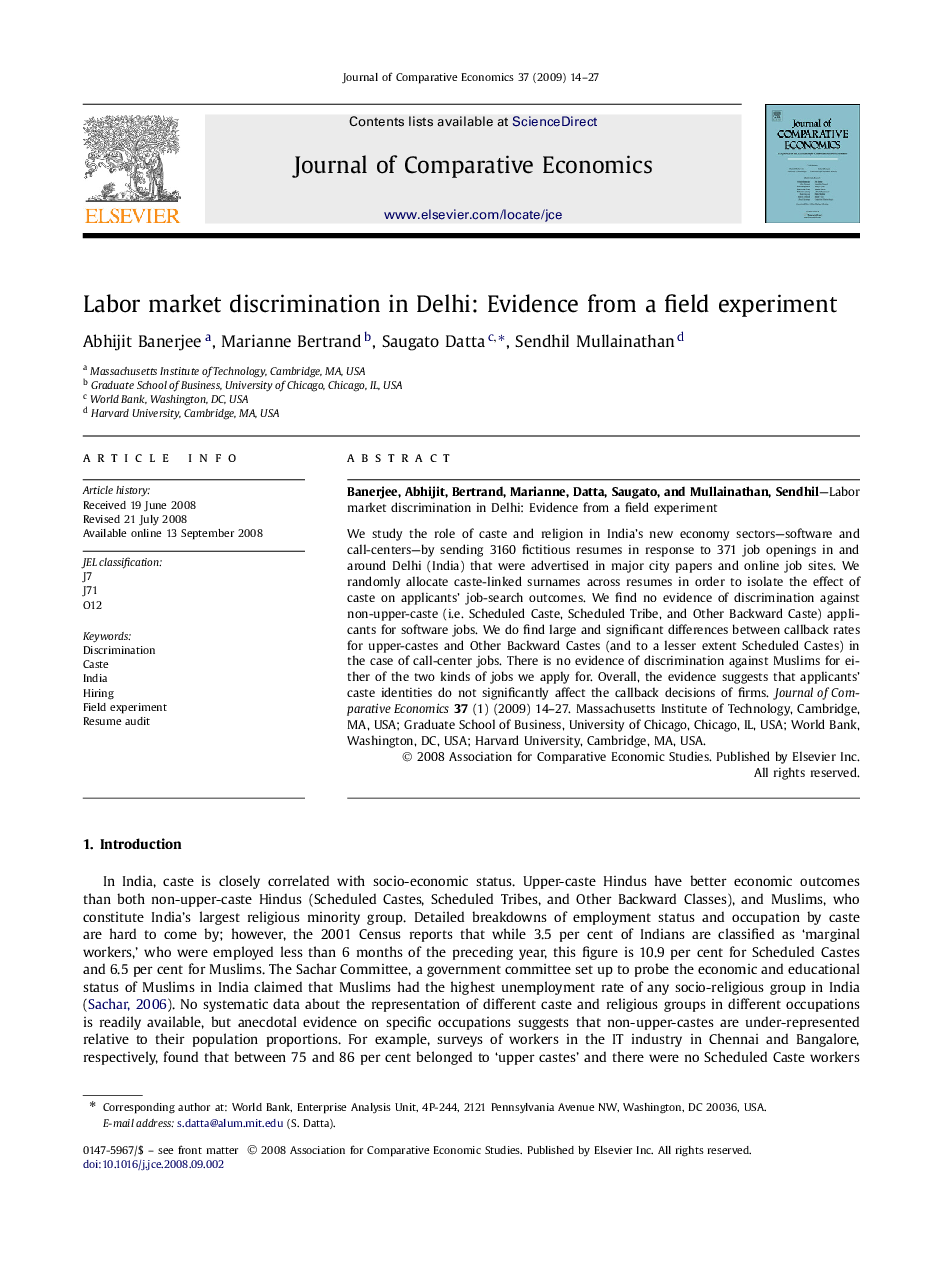| Article ID | Journal | Published Year | Pages | File Type |
|---|---|---|---|---|
| 5092680 | Journal of Comparative Economics | 2009 | 14 Pages |
Abstract
We study the role of caste and religion in India's new economy sectors-software and call-centers-by sending 3160 fictitious resumes in response to 371 job openings in and around Delhi (India) that were advertised in major city papers and online job sites. We randomly allocate caste-linked surnames across resumes in order to isolate the effect of caste on applicants' job-search outcomes. We find no evidence of discrimination against non-upper-caste (i.e. Scheduled Caste, Scheduled Tribe, and Other Backward Caste) applicants for software jobs. We do find large and significant differences between callback rates for upper-castes and Other Backward Castes (and to a lesser extent Scheduled Castes) in the case of call-center jobs. There is no evidence of discrimination against Muslims for either of the two kinds of jobs we apply for. Overall, the evidence suggests that applicants' caste identities do not significantly affect the callback decisions of firms. Journal of Comparative Economics37 (1) (2009) 14-27.
Related Topics
Social Sciences and Humanities
Economics, Econometrics and Finance
Economics and Econometrics
Authors
Abhijit Banerjee, Marianne Bertrand, Saugato Datta, Sendhil Mullainathan,
